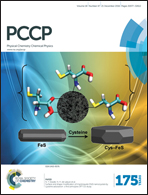Discovering the kinetics of thermal decomposition during continuous cooling
Abstract
The research presented in this paper is devoted to the intriguing phenomenon of thermal decomposition that takes place during continuous cooling after being initiated by heating to higher temperature. This paper describes the principles of detecting this phenomenon and measuring its kinetics. As one of the possible ways, the process can be detected and its kinetics can be measured by means of differential scanning calorimetry provided that cooling is performed several hundred times slower than heating. By way of illustration, the thermal degradation of isotactic polystyrene and thermal dehydration of lithium sulfate monohydrate have been studied upon cooling and heating. The kinetics of both processes have been analyzed by means of the isoconversional methodology. For polystyrene, the kinetics of degradation upon cooling and heating have been similar. The thermal dehydration of lithium sulfate monohydrate has revealed that cooling kinetics differ significantly from the kinetics measured upon heating. It is proposed that such differences should be observed in multi-step processes whose activation energy varies with reaction progress.


 Please wait while we load your content...
Please wait while we load your content...